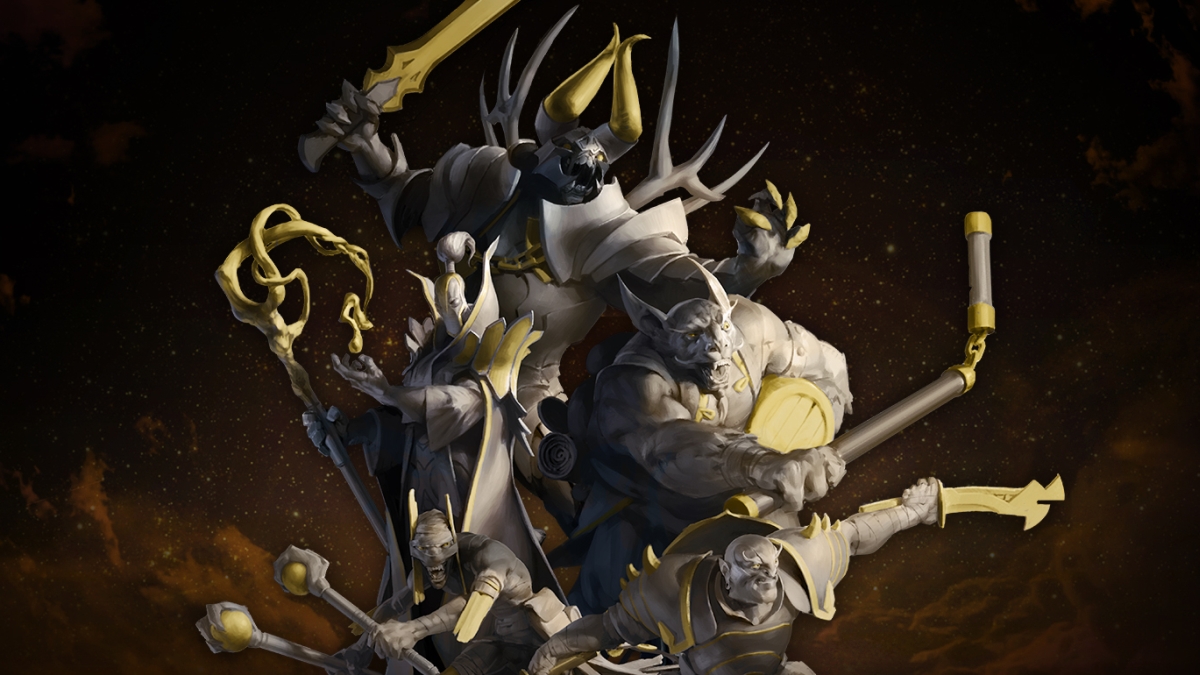The International 2015: everything you need to know

The Dota 2 International 2015 group stages, which ended on Thursday, have been brilliantly exciting and tremendously popular—but they're nothing on next week's main event. Starting on Monday, the 16 best Dota 2 teams in the world will compete for the lion's share of almost $18m. While there are favourites for the title, this is the closest-run International I've ever watched. Upsets seem likely—it's going to be a fierce six-day battle.
It'll also be loud, confusing, silly, and baffling to newcomers. You're going hear at least one adult man bellow 'black hole'. Twitch chat is going to try, collectively, to offer their energy to somebody. That guy with a massive horn from TI3 might be back. You would be forgiven for not knowing what the hell is going on at first.
This guide is designed to provide new viewers and those who didn't have time to tune in for the group stages with an overview of what's happening, what has already happened, who's involved, and how to get the most out of watching the International. This is a large, multi-part guide, so don't feel pressure to read it all at once (though you can if you want to.) It's designed to act as a reference document—don't know a team or strategy? Hopefully, you'll find some answers here.
If you're just dipping your toes into TI5, I recommend reading this page and the beginner's guide to the meta at the end first. Catching up on individual teams and the group stages can wait until it's relevant to the match you're watching.
If there's something you'd like to know and you don't find it here—or you don't find it in sufficient detail—leave a comment. I'll be reading them, making changes where I can, and applying that feedback to future articles like this one.
GL HF! Let's Dota.
Skip to a section by opening the links below in a new tab, or just use the page forward and back buttons above.
Keep up to date with the most important stories and the best deals, as picked by the PC Gamer team.
- Event overview (the basics)
- The teams, part 1
- The teams, part 2
- What happened in the group stages?
- A beginner's guide to the current meta
EVENT OVERVIEW (THE BASICS)
Dates, times and places
The International 2015 runs from the 3rd to the 8th of August (Monday to Saturday next week) at Seattle's KeyArena. Each day's schedule will be a little different—not least because Dota 2 matches are of variable length—but they'll all take place on Pacific Time (-8 BST).
A run of games that takes place between 10.00am and 18.00pm, therefore, would be from 13.00pm and 21.00pm on the east coast, 18.00pm-02.00am in Britain, and an hour later still in western Europe. The grand final is on a Saturday this year, however, unlike the traditional Sunday. It's definitely worth pulling an all-nighter for.
Where to watch
Every game will be streamed on Twitch via the official Dota 2 account. It'll also be available via Valve's brand-new, very swanky streaming channel. This is still in beta and was sometimes unstable during the group stages, but it offers a huge number of benefits over Twitch. It streams at 1080p and 60fps and offers loads of additional functionality through your browser, like a live minimap and interactive stat panels.
It really is good. You can check out players' inventories without waiting for the casters to do so and pull up whatever graphs you're interested in. The chat is better than Twitch by virtue of being smaller—100,000+ people watching one stream devolves into meaningless noise, whereas I've seen the occasional conversation strike up on Valve's stream. Actual conversations! About the game! It's far from perfect, mind, and it's still likely a good idea to close chat entirely using the arrow at the top right of the screen.
Finally, you can watch every match in-game using DotaTV. You access this by booting up Dota 2 and clicking 'Watch' at the top of the screen. The International 2015 should be listed on the left-hand side. Click that and you'll see a list of all currently live matches and any recorded replays.
The benefit of using DotaTV is that you can control the camera yourself, access all the same functionality that the casters use, and disable the cast entirely if you feel like it. A fun way to watch Dota 2 is to sit on Skype/TeamSpeak/Mumble/Ventrilo with your friends and commentate the matches for yourselves. Now you can be the one to miss first blood!
The format
Sixteen teams. Ten teams were invited to the International directly, at Valve's discretion. A further four won their spot by coming first in a regional qualifier—either in Europe, the Americas, China, or South East Asia. The teams that came second in each regional qualifier entered what is known as the 'wildcard'—a chance to earn one of the two remaining spots by winning a one-day bracket that occured right before the group stage.
In the group stage, those sixteen teams were divided into group A and group B. Every team in a group played a best-of-two against every other team in their group. Winning both games in a Bo2 earned 3 points; a 1-1 draw meant that both teams got 1 point; outright losers got nothing. These points were then used to determine group rankings, with the top four teams in each group progressing to the upper bracket in the main event and the bottom four ending up in the lower bracket.
At the main event, teams that begin in the lower bracket have to win a best-of-one—i.e, a single match—to avoid outright elimination. The survivors will then play teams that are defeated in the best-of-threes happening in the upper bracket, which is why group stage placement is quite so important. It's not impossible for a lower bracket team to make it to the grand final, but the road is long and every match is an elimination match.
Find out how the brackets stand at any given point by visiting the schedule on the official tournament site.
The prize
- First place: $6,410,330
- Second place: $2,760,003
- Third place: $2,136,777
- Fourth place: $1,513,550
- Fifth/sixth place: $1,157,421
- Seventh/eighth place: $801,291
- Ninth-twelfth place: $213,678
- Thirteenth-sixteenth place: $53,419
...and all of those numbers might go up with further Compendium sales. Crikey.
International prize pool fact: in 1985, the killer whale Keiko—later known for the role of Willy in the film Free Willy—was sold to a Mexican aquarium for $350,000. In 2015, that's about $780,000. This means that the top eight finishers at this year's International could afford to collectively buy a killer whale, while the grand champions will be the only players able to buy a killer whale each. This is the most pointless prize pool fact I could come up with.
Next: the teams, part one.
Joining in 2011, Chris made his start with PC Gamer turning beautiful trees into magazines, first as a writer and later as deputy editor. Once PCG's reluctant MMO champion , his discovery of Dota 2 in 2012 led him to much darker, stranger places. In 2015, Chris became the editor of PC Gamer Pro, overseeing our online coverage of competitive gaming and esports. He left in 2017, and can be now found making games and recording the Crate & Crowbar podcast.


